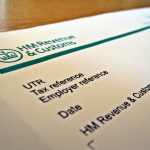If you are buying or selling a house, you need a plan for informing others of your change of address. When we think about moving house it is very easy to think about the obvious task of shifting furniture and other belongings. We may even be vaguely aware that we want to keep our existing broadband supplier and telephone number. When you look more closely at how many people need to know where you live, you realise this is quite a task in itself and any oversight may cost you dearly.

One way of ensuring that you leave no stone unturned is to categorise the types of organisation you need to inform. We suggest the following:

Most people are using gas and/or electricity, and water. Other commonly used utilities include broadband and landline services along with cable or satellite TV. Make sure you let these organisations know the Completion Date and if you are selling a property, inform the buyer in good time so they can make suitable arrangements for continuity of service, and to avoid bill disputes.


Contracts involving mobile phones or mobile internet using dongles are a type of credit agreement and it is important to update the relevant organisations of the change of address. Failure to keep these records up to date will mean different credit organisations could have different addresses for you and in theory this could affect your credit rating by raising flags.
If you are working for an employer they will usually organise this for you however if you are self-employed or responsible for self-assessment you need to let HMRC know directly or do it through your accountant.

This is important if you want to avoid overpaying or underpaying council tax in the property you are leaving. Your local authority will make it so you are paying the right amount of council tax for the time you have lived in the old address and that the clock is ticking from an accurate start time in your new home, and that your new council tax bill is being calculated at the correct rate.

This covers a broad spectrum of services including, as mentioned above, mobile phone and internet agreements.
Start with the obvious; your current and savings accounts. From there you may have more bespoke savings accounts such as ISAs, pensions and other investments. Make a list of the different types of insurance you have such as:

Then you need to consider any items you are renting or obtained through hire purchase (often with insurance agreements attached). Remember if your financial information does not tie together giving a unified picture of who you are and where you live this may cause credit issues until the inconsistencies are corrected.
Don’t forget to inform credit card companies of your change of address. You really don’t want sensitive information about any of your affairs being delivered to the new occupants of the house you are vacating, especially financial affairs.
 Potentially you will be involved in many organisation through your vehicle(s). You are legally obliged to update the DVLA of changes of address so they can update your driving license and vehicle log book(s). Failure to do so may not only put you in hot water legally but having a different address to that shown on your driving license could prevent you from hiring a car for example.
Potentially you will be involved in many organisation through your vehicle(s). You are legally obliged to update the DVLA of changes of address so they can update your driving license and vehicle log book(s). Failure to do so may not only put you in hot water legally but having a different address to that shown on your driving license could prevent you from hiring a car for example.
As mentioned under the Finance section you will need to inform your motor insurance company however many people have separate roadside assistance agreements with AA or RAC for example. Make sure you give them your new details as well.
 This covers a wide range of organisations from your local dentist and doctor’s surgery to any specialist treatment centres or referral units you may attend as an out-patient. If you are wearing glasses or contact lenses then your opticians need to be updated.
This covers a wide range of organisations from your local dentist and doctor’s surgery to any specialist treatment centres or referral units you may attend as an out-patient. If you are wearing glasses or contact lenses then your opticians need to be updated.
Do you have dependants living with you? Your children’s records will also have to be updated. Dependants also includes pets so remember to keep your vet or pet insurance provider updated.
Are you studying part time or do you have children at school? It is easy to overlook but if you don’t inform them you could miss important correspondence.
We have listed this separately because these are known to be particularly keen and you can expect to hear from them extremely quickly once you are in your new home. If you don’t update them quickly they do follow through with threats and the consequences can be quite serious.
While you don’t have to worry about fines, penalties or other financial headaches if you forget to update clubs and societies, friends and neighbours, not keeping them updated can mean that you miss out on important promotions and newsletters, and potentially it means that strangers could be made aware of your personal information. By ensuring friends and neighbours know where you have gone, you make it more likely that anybody you have missed can still track you down.

Now this may seem obvious and the first thing that comes to mind is probably the Post Office however it is also a good idea to give a forwarding address to the new owner if you are selling a house. If they are a private buyer then you can be more sure that any mail that isn’t redirected will get to you in the end – you can agree to stay in touch for a brief period to cover any loose ends. If they are a property developer or agency it is better to get them onside. They may be kind enough to inform any new tenants to put your stray post to one side.
You cannot be too thorough when it comes to informing people and organisations of your change of address. Many of them will expect an update in writing although you may be able to make some changes online. Creating a template document can save a lot of time for the former.

Moving house is a serious business but with good planning in advance you will get everything sorted one step at a time. A good quality conveyancer will not only help you with the legal nuts and bolts of the process; they will usually be happy to advise you all the other elements you need to remember, including informing others of your change of address. For more information on how we can help with your house purchase or sale, get in touch today.